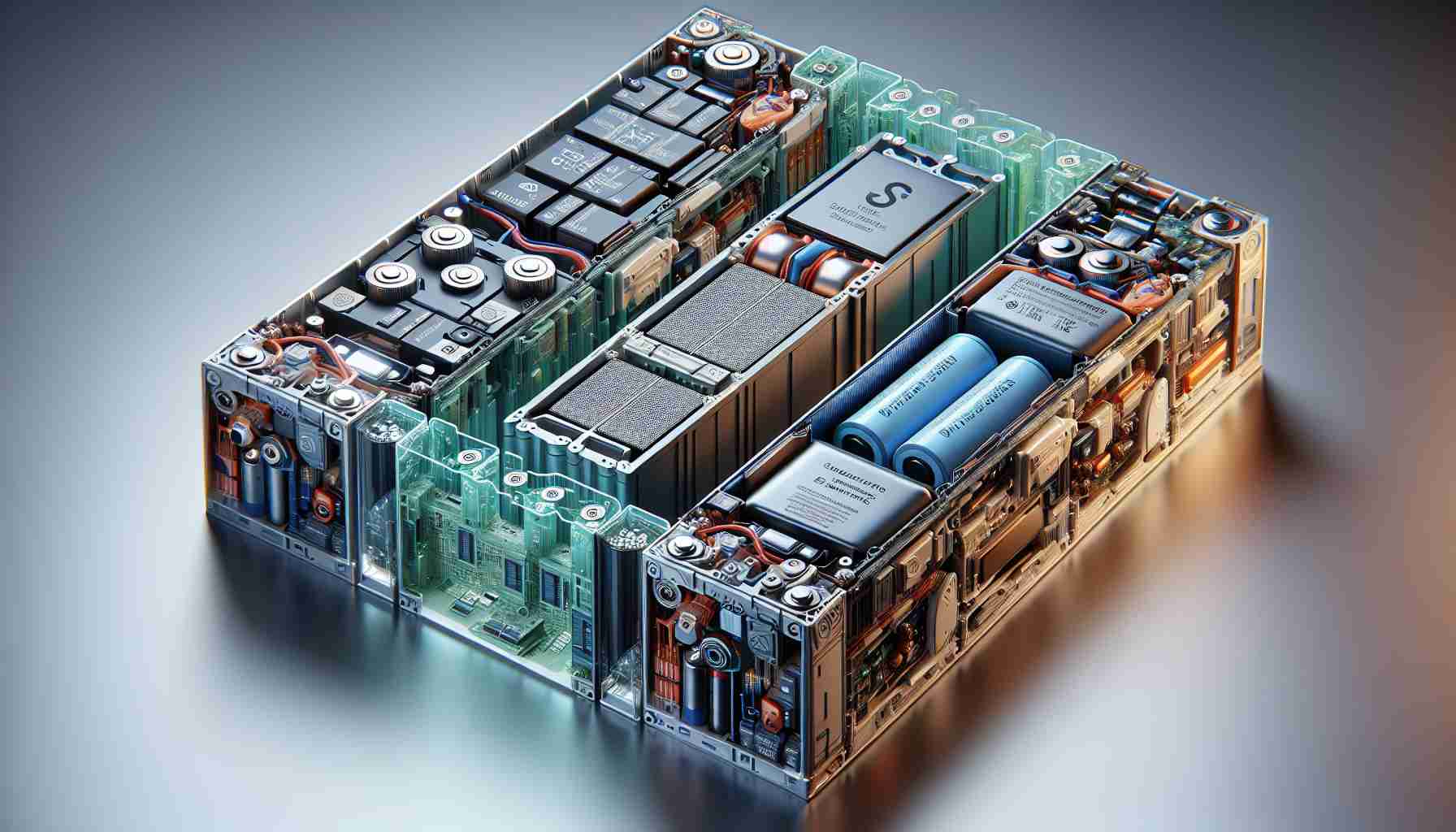The future of battery technology is being rewritten by solid-state batteries. As electric vehicles (EVs) and portable devices gain popularity, the demand for efficient and long-lasting power sources is higher than ever. Solid-state batteries are emerging as a promising alternative to the widely used lithium-ion batteries, but what sets them apart?
One of the key advantages of solid-state batteries over traditional lithium-ion batteries is their potential longevity. Solid-state batteries utilize a solid electrolyte instead of the liquid or gel electrolyte found in lithium-ion batteries. This not only enhances their energy density but also contributes to a longer lifespan. While traditional lithium-ion batteries degrade over time, losing about 20% of their capacity after roughly 500 charge cycles, solid-state batteries are designed to sustain thousands of charge cycles with minimal degradation.
Moreover, solid-state batteries offer increased safety. The absence of liquid electrolytes eliminates the risk of leakage and reduces the potential for fires, a known issue with lithium-ion technology. Additionally, solid-state batteries can operate efficiently at a wider range of temperatures, further improving their reliability and performance.
However, despite these advantages, solid-state batteries are still in the developmental stage and face challenges such as high production costs and scalability. The technology’s breakthrough could redefine various industries, but for now, lithium-ion remains the standard, thanks to its established infrastructure and lower costs.
The battle between solid-state and lithium-ion may still be in its early stages, but the promise of more efficient and safer energy storage is pushing innovation forward at a rapid pace. As research progresses, we may soon witness a pivotal shift in the way we power our world.
The Future of Energy Storage: Solid-State vs. Lithium-Ion Batteries
As the world embraces electric mobility and portable technology, the spotlight shines brightly on the quest for superior energy storage solutions. Solid-state batteries are emerging as a potential game-changer in the energy landscape. While the article highlights their potential advantages over traditional lithium-ion batteries, let’s delve deeper into the more nuanced aspects of this evolving technology.
Innovations and Developments in Solid-State Batteries
Solid-state batteries are not just enhancing their longevity and safety features; they are also at the forefront of innovation in terms of energy density. Recent research and development efforts focus on increasing the energy capacity, which could lead to lighter and more compact battery designs. This advancement holds the potential for industries beyond automotive and personal devices, influencing everything from renewable energy storage to aerospace applications.
The Pros and Cons of Solid-State Batteries
Pros:
1. Longevity: Extended lifespan with the ability to endure numerous charge cycles.
2. Safety: Elimination of liquid electrolytes reduces fire risks.
3. Temperature Tolerance: Efficient operation over a broad range of temperatures.
4. Energy Density: Potential for higher energy storage compared to lithium-ion.
Cons:
1. Cost: High production costs remain a significant hurdle.
2. Scalability: Mass production is challenging and currently limits widespread adoption.
3. Development Stage: Still in research phases, not widely available in consumer markets.
Industry Trends and Market Analysis
Solid-state batteries are drawing considerable interest from major corporations and investors. Car manufacturers and tech companies alike are investing in solid-state technology, aiming to integrate these batteries in upcoming models and devices. The market for solid-state batteries is projected to grow significantly over the next decade, as advancements continue and production costs potentially decrease.
Insights and Predictions
Experts predict that as solid-state batteries advance and become more cost-effective, they could surpass lithium-ion batteries, especially in sectors where safety and longevity are crucial. The integration of solid-state technology can revolutionize how energy is stored and used, paving the way for innovative applications like electric aircraft and more sustainable grid power storage.
Compatibility and Sustainability
Solid-state batteries are seen as a sustainable alternative, with a smaller environmental footprint due to less reliance on volatile materials. As industries aim for greener solutions, solid-state technology’s appeal is growing. They are expected to be compatible with a range of devices, providing flexibility and efficiency.
Current Limitations and Security Aspects
While promising, solid-state batteries must overcome production challenges to ensure they meet global standards for safe storage and transportation. Security measures are being designed to mitigate potential issues related to new material usage and to secure the integrity of these advanced batteries through rigorous testing and certification processes.
For a deeper understanding of battery technologies and their implications across industries, visit the Circuit Digest website for more information on electrical engineered solutions.







